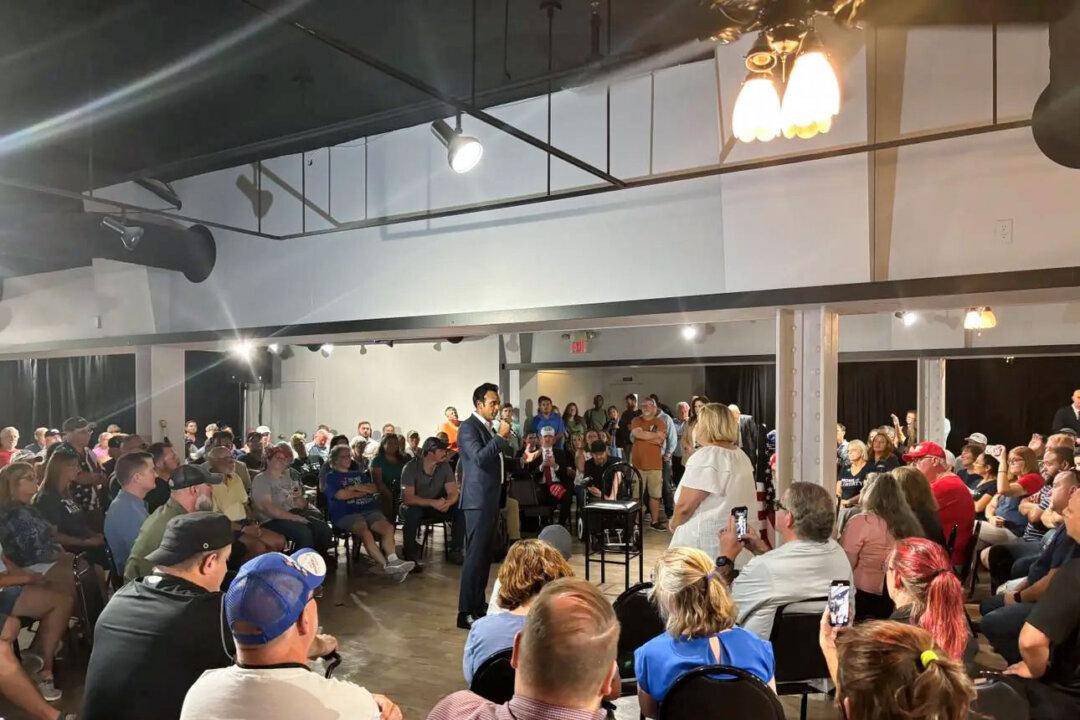SPRINGFIELD, Ohio—Talk about Haitian migrants reportedly killing and eating cats and dogs catapulted Springfield, Ohio, onto the national stage, but the subject was rarely mentioned during Vivek Ramaswamy’s town hall there on Sept. 19.
Most of the residents focused on concerns about the consistently growing Haitian population. They are frustrated over safety issues and a strain on resources among other issues.





